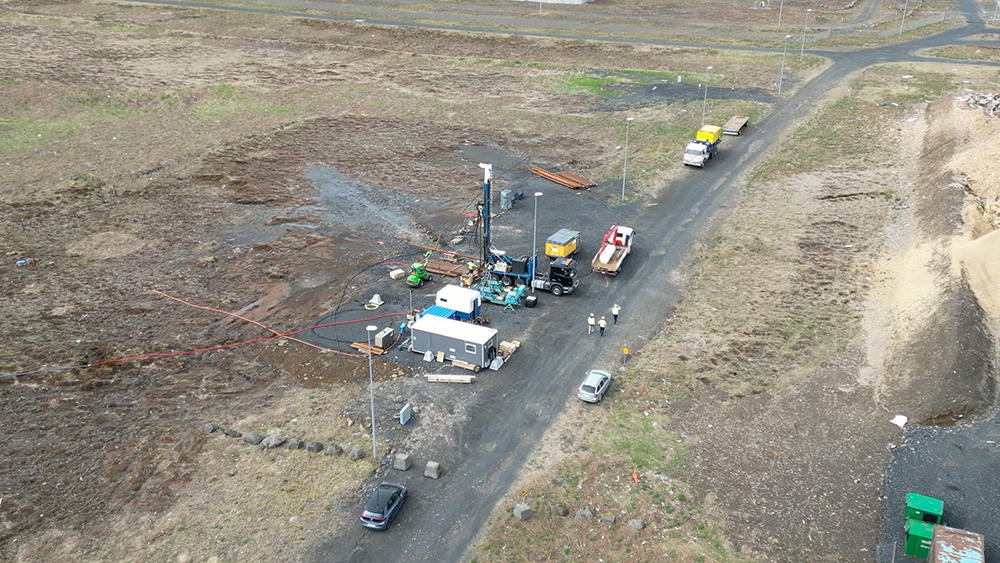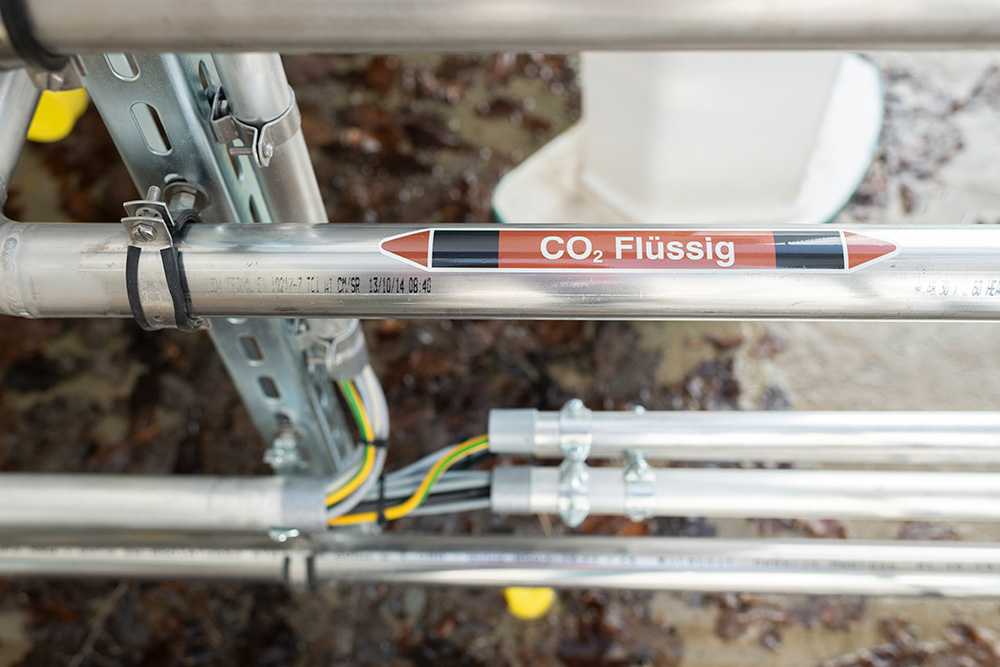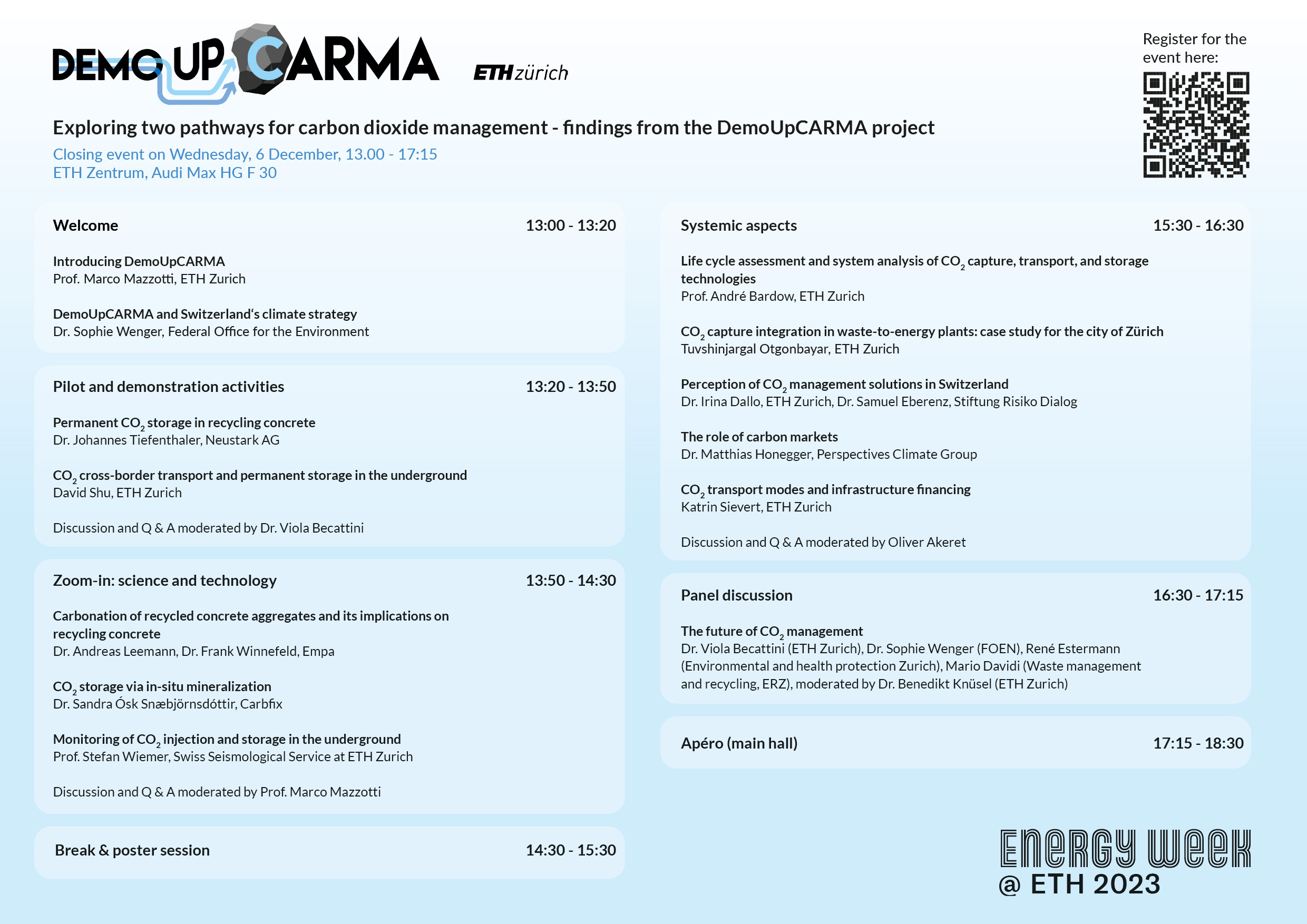News and events
- 2023-11-14
DemoUpCARMA Closing Event - Registration open!
At our closing event, we present the main findings of the DemoUpCARMA project. We will start by introducing our pilot and demonstration activities followed by a closer look at the relevant carbonization and mineralization processes including their monitoring. This will be followed by a discussion of the systemic aspects of both pathways such as life cycle analyses, models for transport and infrastructure, public perception of carbon capture and storage, and a case study on how to integrate CO2 capture in waste to energy plants.
The deep dive into the project findings will be completed by a panel discussion. The event will be in English.
Please save the following date:
Wednesday, December 6, 2023, from 13.00 - 17.15 at ETH Zurich Audi Max (HG F 30) followed by an apéro.
- 2023-11-03
First injection of Swiss CO2 dissolved in seawater started in Iceland
 Read more...
Read more...This week, for the first time, CO2 originating from Switzerland mixed with seawater was injected into the basaltic subsurface in Helguvík, Iceland. This was done to test the subsequent mineralization and thus permanent storage of CO2. The pilot project DemoUpCARMA and its partner project DemoUpStorage have been leading the logistical aspects of this test in close collaboration with the Icelandic partner company Carbfix and the SeaStone project. The research now focuses on monitoring the CO2 injection and mineralization processes.
With the start of the injection of Swiss CO2 in Helguvík, DemoUpCARMA and DemoUpStorage have reached an important milestone. The injection of CO2 dissolved in seawater into the basaltic subsurface at a depth of about 400 m below sea level is being tested for the first time. Previously, the partner company Carbfix has been using fresh water to dissolve the CO2 for the purpose of subsurface mineralization. The task now is to investigate with field tests whether the procedures and mineralization processes work with seawater, which Carbfix in collaboration with the University of Iceland has already demonstrated under laboratory conditions. As part of DemoUpStorage, a comprehensive array of geophysical monitoring techniques will be employed to track mineralization in the basaltic reservoir. Gases dissolved in the fluid will be tracked in continuous mode after injection, thus complementing the geochemical monitoring conducted by Carbfix.
The pilot injection will offer valuable insights for future attempts to inject and permanently store CO2 as carbonate minerals in basaltic structures using seawater, an abundant resource. Oceanic and terrestrial basalts have an enormous theoretical capacity for mineral storage of CO2. Therefore, this method could provide a viable solution for geological storage of significant amounts of carbon dioxide, and thus increasing the contribution of subsurface mineral storage to the goal of achieving the world’s climate targets.
More details about the mineralization process and monitoring methods in the subsurface can be found in our blog text. - 2023-10-31
Industry Brief on regulatory framework for CCS
The Industry Brief on "International and European Regulatory Framework for Carbon Capture and Storage (CCS)" has been published on the project website of ACCSESS*. It outlines the international legal framework applicable to CCS operations, which are also relevant for Swiss CCS operators and thus provides valuable insights for DemoUpCARMA stakeholders.
Download the Industry Brief here (PDF, 0.4 MB).
ACCSESS is a four-year Horizon 2020 project that aims to demonstrate technologies and produce tools and plans that enable widespread CCS deployment in Europe.
- 2023-10-12
Concrete as CO2 trap – right at the plant

In a detailed report, the partner institute Empa reports on their research to store CO2 in concrete that their scientists conducted together with the company Neustark.
Click here for the full article.



